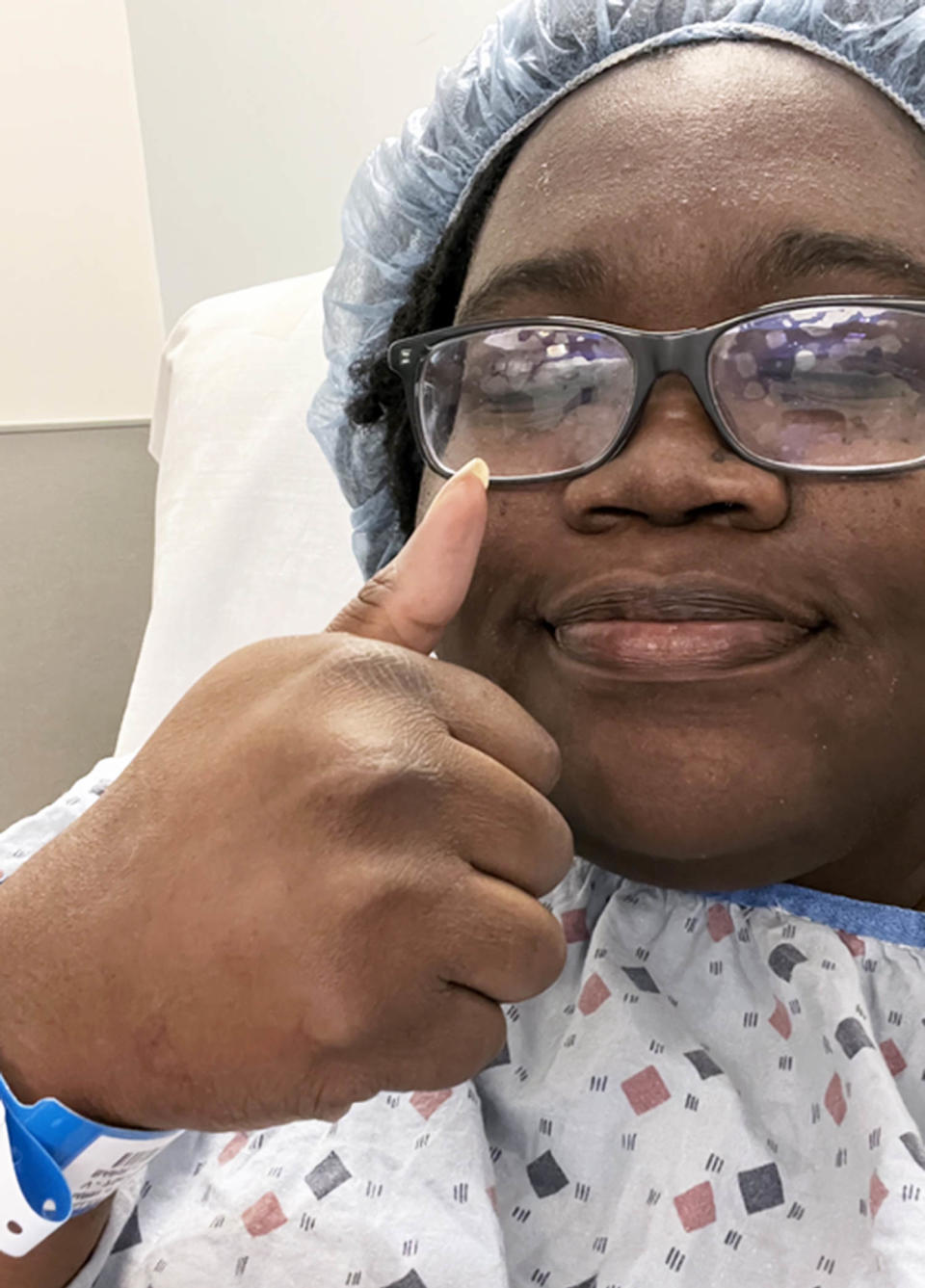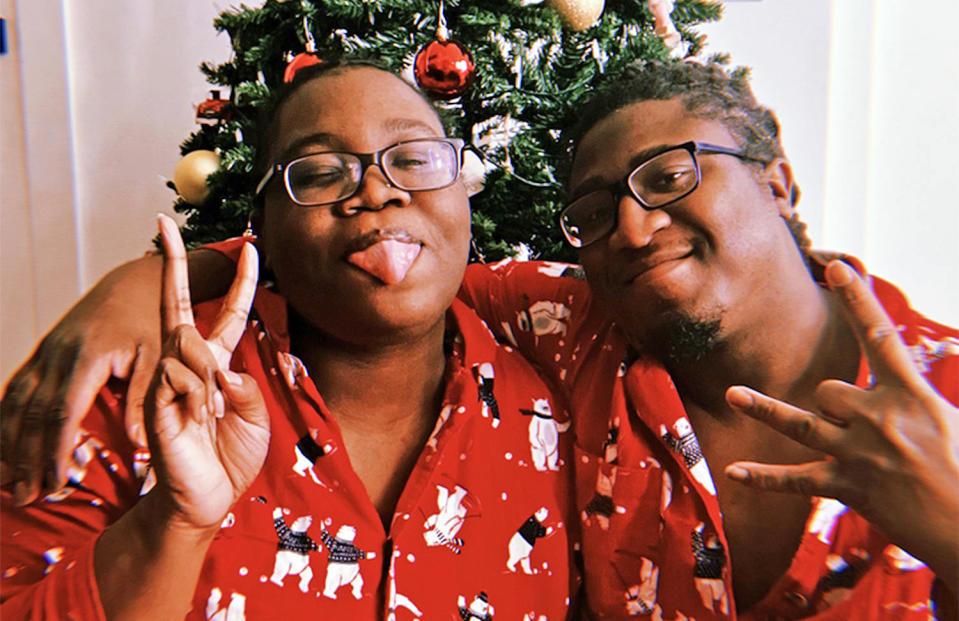Ayanna Miller, 29, is TODAY's multiplatform editor. She has PCOS and endometriosis, two conditions that are difficult to diagnose and treat. After feeling dismissed by a doctor, she started taking her husband, Phin, to her gynecology appointments. She shares her experience with one of TODAY's health reporters in the following essay.
When I started experiencing pelvic pain in my early twenties, I visited my doctor almost every month to ask for help. Yet each time I felt like my concerns had been addressed. I'd hear, “Oh, you're overreacting.” Or, “It's mittelschmerz,” which are cramps that occur during ovulation.
I told doctors several times that I thought I had endometriosis, a condition in which tissue similar to the uterine lining grows in the pelvic cavity and can cause a lot of pain. When I have a flare, it feels like someone is sticking a hot poker or knife into my pelvis. But the doctors kept telling me that I didn't have the symptoms of the condition, and that it was “just” pelvic pain.

I eventually had surgery for my endometriosis, but only after visiting seven different doctors.
However, I was eventually diagnosed and had excisional surgery to remove the endometriosis, but it took me many years of advocating for myself and visiting seven different doctors before anyone took my concerns seriously.
My experience with being diagnosed with PCOS was also difficult, and after several visits I finally convinced my doctor to give me a blood test that I knew would indicate I had the condition, an endocrine disorder characterized by hormonal imbalances. It can cause irregular periods, ovarian cysts, insulin resistance, facial hair growth and infertility.
The idea to take my husband, Phin, with me to gynecologist appointments came about after a particularly bad experience with a doctor. My IUD was hurting and I wanted to try a different type of birth control. I made it clear then that I did not want children. But the doctor minimized my concerns and ignored my request, telling me I would be fine and offering no other options.
Upset by the doctor's terrible bedside manner and the rough ultrasound, I told Phin. I shared that I felt emotionally drained when I was told I was overreacting, lying, or “too young” to make decisions about my own body. Shortly after, he started going to OB-GYN appointments with me.
I feel anxious when I go to the doctor, and having Phin by my side soothes that feeling. When Phin and I discuss my health at home, he asks questions to really understand my symptoms. I call him my 'second doctor'. If I forget something during a conversation with a doctor, he often remembers it and mentions it. Phin has no qualms about discussing women's health. He grew up with five sisters, so talking about women's bodies feels natural to him.

My husband and I.
If I bring up something that's bothering me during a visit and a doctor ignores it, Phin will redirect the conversation. One time I was visiting an endometriosis specialist and I explained that my pain had been getting worse and that I was having breakthrough bleeding. At the time, my birth control stopped my periods, so this symptom felt worrisome. I asked if my experience was normal and the doctor said, “It's fine.” Five minutes later, Phin brought up the bleeding again and this time the doctor explained why it could happen. Although I was grateful for the answer, it really pissed me off that the doctor sent me away but Phin answered.
Being treated differently when Phin is with me is frustrating and highlights a bigger problem. Health professionals often don't listen to Black women and that can have disastrous consequences for our health. Realizing that I am being ignored or rejected when my husband is not around makes me feel like I don't matter or that my health problems are not serious. In healthcare institutions without Phin, the staff often treats me as if I were a nuisance.
I first started taking Phin alone to OB-GYN appointments, but he has been such a helpful advocate for my health that I now take him to all my medical appointments. It makes me feel better and I feel like I get more attention and better treatment. Fortunately, I now have a gynecologist I trust, someone who treats me the same way whether Phin is with me or not. But it's still nice to have him in my corner.
I know some women have romantic partners who feel uncomfortable going to the gynecologist with them. I would encourage all women – especially women of color – to take a companion with them to doctor's appointments or to the hospital if they can. It doesn't even have to be your significant other. You can bring another loved one, such as a parent, friend or brother or sister. I also encourage people to make notes about their symptoms and take them with them to doctor visits so that they have all the information on hand in case something comes to their mind. You can always refer to it when you talk to your doctor. It's hard to stand up for yourself, especially if you're a person of color, and I want others to know that it's okay to ask for help.
I'm so grateful that I did that.
This article was originally published on TODAY.com

